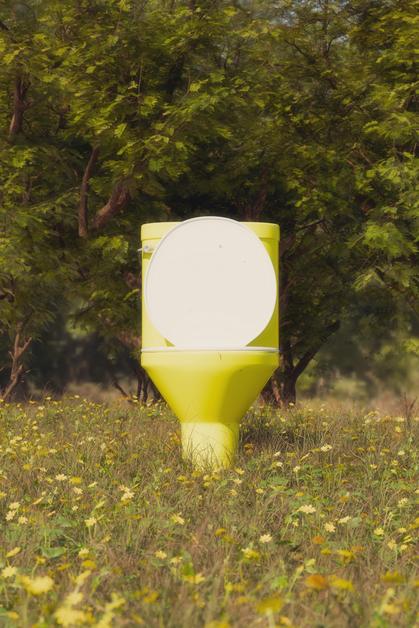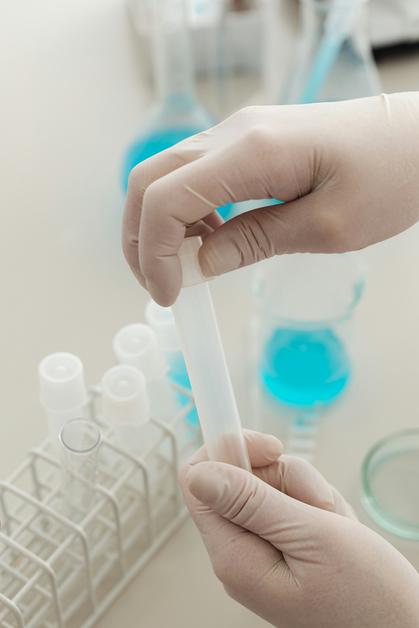Growing a new life inside can sometimes feel like managing multiple surprises at once, and one of the most persistent—and surprisingly disruptive—companions is
frequent urination during pregnancy. Suddenly, the bathroom becomes a close ally; daytime, nighttime, even those odd moments when you thought you had just visited. Parents often find themselves genuinely puzzled. Is something wrong? Should this constant urge to pee worry you? Does it ever slow down? The beauty—and challenge—of pregnancy is how even ‘ordinary’ symptoms like this hold layers of explanation, practical challenges, and emotional impact. Here’s what to expect: from hormonal cascades and pressure from the growing baby, to ways of easing discomfort and signals that call for medical attention. Beyond the science sits the simple truth: being prepared and understanding this symptom can make all the difference to comfort, sleep, and peace of mind.
What Exactly Is Frequent Urination During Pregnancy?
Frequent urination during pregnancy doesn’t mean you’re suddenly drinking buckets of water. Instead, it’s your body’s way of adapting: hormonal shifts, a dramatic surge in blood volume, and the steady advance of your growing uterus all combine to challenge your bladder’s patience. Before pregnancy, popping into the restroom 6 to 7 times a day might have been typical. Once those
pregnancy hormones kick in, double-digit trips—sometimes reaching 10 or even 15 times in 24 hours—are not unusual. The experience is intensely individual: some notice changes as early as week 6, while for others it arrives later. Alongside the frequency, “nocturia” (waking up repeatedly through the night to urinate) becomes a familiar guest, disturbing already fragile sleep. And what about that nagging feeling of never quite emptying your bladder? Another byproduct of this whirlwind.
Main Signs and How It Differs From Normal Patterns
Have you found yourself planning errands based not on traffic, but restroom access? This is one of the quirky consequences of
frequent urination during pregnancy. Parents often report:
- Urges that hit out of nowhere, sometimes with little to show for it
- Tiny leaks while laughing, sneezing, or sudden movements—especially as the belly grows
- A strange sense that the bladder is never truly empty, even right after a bathroom visit
- Nighttime sprints to the washroom, sometimes up to six times between dusk and dawn
All these go hand-in-hand with the body’s changing chemistry and anatomy.
Why Is Frequent Urination During Pregnancy So Common? The Medical Perspective
Let’s break down what’s really going on inside. The recipe for
frequent urination during pregnancy is no mystery to science, but it’s a fascinating blend!
Hormonal Orchestra
- The hormone hCG (human chorionic gonadotropin), rising sharply in early weeks, signals your kidneys to ramp up filtration. More blood flow to the kidneys leads to more urine—fast!
- Progesterone, another pregnancy superstar, helps relax muscles everywhere, including those in the bladder and urethra. The result? Less resistance to the urge.
Bladder Squeeze: Uterine Pressure Explained
- In the first trimester, hormones do the heavy lifting. By the third trimester, it’s a different story: your uterus, once the size of a pear, now presses directly on your bladder, shrinking its capacity further.
- The baby’s head “engaging” in the pelvis as due date approaches? That’s the coup de grâce for your already-strained urinary routine.
Kidney Power & Blood Volume
- Blood volume during pregnancy rises by up to 50%! Kidneys, ever efficient, kick into high gear processing this influx, which translates directly into more urine production.
- As kidneys filter more blood, they also remove more waste, a critical adaptation to keep both parent and baby healthy.
Pelvic Floor Adaptations
- Pelvic floor muscles relax to support the growing womb and future delivery, but they lose a bit of their “clamping” efficiency—hello, leaks and those maddening urgent sprints!
How Frequent Urination Changes Over Pregnancy
Tracking the waxing and waning of
frequent urination during pregnancy through the trimesters is almost a journey by itself:
First Trimester: The Surprise Start
Many parents describe a sudden wave of bathroom dashes, even before a pregnancy is officially confirmed. Think hormonal engines running at full throttle.
Second Trimester: Brief, Sometimes Misleading Calm
As the uterus rises higher into the abdomen, it momentarily shifts away from the bladder. Relief! Yet for some, hormonal influence keeps the urgency alive regardless.
Third Trimester: The Intense Comeback
With the baby descending lower and pressure mounting, even a half-full bladder starts calling the shots. Interrupted sleep, daytime inconveniences, and rapid dashes—this is the home stretch.
After Birth: Unwinding to Normal
Right after delivery, urination can become even more frequent—your body is shedding excess fluid. Usually, things calm down within six weeks. If not, do seek advice.
Watch Out: Warning Signs Among Normal Symptoms
Of course, pregnancy doesn’t offer a free pass for every urinary change.
Frequent urination during pregnancy is routine, but certain accompaniments shift the picture:
- Burning or stinging pain
- Cloudy, foul-smelling, or blood-tinted urine
- Persistent or severe pain in the lower abdomen or back
- Fever or chills
- Leaking a constant trickle of clear fluid (may be amniotic fluid)
Each of these could signal a urinary tract infection (UTI) or other issue that needs medical evaluation. Don’t brush it aside—quick action means better comfort for you and safety for your baby.
Practical Tips to Ease Frequent Urination
Managing
frequent urination during pregnancy isn’t about “winning” against your bladder, but making small changes for maximum comfort.
Fluid Management
- Drink steadily throughout the day. Hydration is vital, especially as your blood volume increases.
- In the evening, taper fluid consumption. A simple tip that can nudge the number of nightly bathroom trips a notch lower.
Restroom Habits & Hygiene
- Resist the urge to “hold it in”—this only increases the risk of infection by letting urine (and possibly bacteria) linger in the bladder.
- Slightly leaning forward while urinating can help ensure the bladder empties more fully.
- Basic hygiene, like wiping front to back and urinating after intercourse, keeps infection risks down.
Wardrobe & Lifestyle Tricks
- Stick with airy, cotton underwear. Tight clothing is no friend to a sensitive pelvic area.
- Carry extra undergarments or an absorbent pad for days when leaks surprise you.
- A reliable nightlight for nighttime visits keeps falls and accidents at bay.
Dietary & Physical Strategies
- Boost your fiber—constipation creates extra pressure on the bladder. A sluggish bowel and a complaining bladder? Not a combo you want.
- Elevate legs now and then during the day; this can help reduce fluid accumulation in the feet and minimise midnight peeing.
The Power of Kegel Exercises
While classic advice for labour prep, Kegel exercises offer solid benefits all through pregnancy and beyond. These movements—squeezing and releasing the pelvic floor—are simple, private, and powerful tools for reinforcing bladder control. Aim for three sets per day, holding each squeeze for 5–10 seconds. Consistency trumps intensity.
For those who do experience minor leaks, pads offer backup. But don’t skip the daily pelvic floor practices—long-term strength and bladder support depend on them.
Preventing Urinary Tract Infections as Pregnancy Progresses
A few more lines of defence:
- Use gentle, unscented toilet paper.
- Avoid harsh soaps on the genital area.
- Change your underwear regularly and keep clothing dry.
Promptly flag any change in urinary comfort to your medical team. Simple urine tests spot most problems early, and safe treatments exist for pregnancy.
Special Considerations: Frequent Urination and IVF
With IVF, hormones used in treatment add a layer of complexity. Regular check-ins with your doctor, careful tracking of hydration, and wearing loose, comfortable clothes become even more relevant. The underlying advice remains unchanged: listen to your urges, protect urinary health, and communicate openly during appointments.
Potential Complications: If Frequent Urination Is Ignored
Consistently avoiding the call of nature does more than increase discomfort. Overfilling the bladder can lead to stagnant urine—a breeding ground for bacteria, raising risk of infection and, in rare cases, kidney complications or preterm contractions. Quick response to your body’s needs preserves both comfort and health.
Myths and Reassurances: Clearing the Fog
Does
frequent urination during pregnancy mean you should drink less? Absolutely not—correct hydration is essential both for you and your baby. There’s also no need to feel embarrassed: this experience is shared by most expectant mothers worldwide. Never shy away from discussing it with your healthcare provider, either. Pelvic floor exercises are as essential now as after birth—don’t leave them for the
postpartum period.
Emotional Wellbeing: Beyond Physical Symptoms
Lost sleep, frustration over sudden leaks, reluctance to travel—
frequent urination during pregnancy reshapes routine in unexpected ways. Notice what triggers symptoms, talk openly with loved ones, and consider gentle ways to reduce stress—maybe an evening stroll or short meditative moments. Partners can play a profound part: a patient ear, practical help, or simply sharing a quiet nightlight-lit walk to the bathroom.
Persisting discomfort, embarrassment, or rising anxiety about these changes? Share your worries with your provider or a support network. Your wellbeing always deserves attention.
Treatment Pathways and Getting Back on Track
If infections occur, safe, pregnancy-appropriate antibiotics are highly effective. If discomfort or leakage lasts beyond six weeks postpartum, further assessment is both reasonable and important. Continued pelvic floor routines and mindful bathroom habits offer genuine help for recovery.
Key Takeaways
- Frequent urination during pregnancy is a widespread, natural adaptation to increased blood flow, hormonal shifts, and the growing uterus.
- Hydration, personal hygiene, and regular Kegel exercises each help in reducing discomfort and avoiding secondary problems like infections.
- Don’t delay seeking help for warning signs: burning, fever, blood in the urine, or persistent back pain.
- Each experience is unique; adapt routines, trust your instincts, and reach out for support as needed.
- For additional resources, including expert advice and free health assessments for your child, download the application Heloa.
Questions Parents Ask
Can frequent urination during pregnancy affect sleep quality?
Absolutely—many parents find themselves making multiple trips during the night, leading to broken sleep and added fatigue. Consider trimming down fluid intake a few hours before bedtime and keeping a soft nightlight for those sleepy sprints. If sleep loss becomes a major issue, a quick check-in with your doctor might reveal more tailored solutions.
How can I differentiate between normal frequent urination and symptoms of a urinary tract infection during pregnancy?
While that extra need to pee is generally nothing to fear, watch closely for symptoms like pain, burning, cloudy or blood-tinged urine, fever, or a sense that the bladder never really empties. Any doubt? Best to err on the side of caution and touch base with your doctor. Quick, safe treatments await—and peace of mind is priceless.
Are there foods or drinks that make frequent urination worse during pregnancy?
Certainly! Drinks containing caffeine (coffee, tea), fizzy beverages, and anything laced with artificial sweeteners can irritate the bladder and spike those urgent feelings. Occasionally, heavily spiced or acidic foods do the same for some people. Noticing a pattern with certain foods or drinks? Adjusting your choices—without cutting hydration—might turn the dial down on those symptoms. Always listen to your body’s signals and consult if doubts persist.








